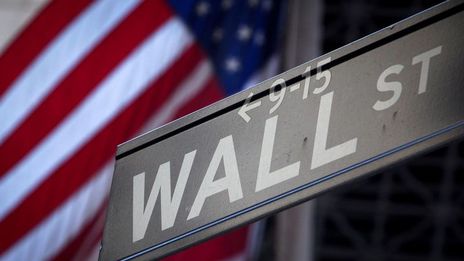By Anna Hirtenstein
European inflation expectations are rising as investors anticipate ongoing easy monetary policy and a global economic rebound boosted by U.S. fiscal spending.
The closely watched 5-year 5-year forward inflation swap rate for the euro area rose above 1.35% Tuesday, the highest in over a year. It continued to hover near that level Wednesday. The metric shows an average expectation for price increases over five years.
"This is quite a remarkable move, it has surprised us," said Jorge Garayo, a rates and inflation strategist at Société Générale.
Forecasts for higher prices are playing out in the bond market. Germany's 10-year break-even rate, or the difference in yield between its benchmark bond and a price level-linked bond, climbed above 1% for the first time since February. Italy's equivalent rate hit a more-than two-year high. Essentially, a higher break-even rate suggests investors expect prices to rise faster.
"With the onset of vaccines, people are upgrading their growth outlooks, " said UBS rates strategist Rohan Khanna.
Inflation is closely tracked by investors because it impacts the valuation of financial products -- particularly bonds, which lose out if prices rise too fast because their payouts are typically fixed. Inflation often comes in below expectations in much of the developed world.
Eurozone inflation turned negative in 2020 as the region's economy was battered by the pandemic and intermittent lockdowns. The headline inflation rate stood at minus 0.3% in November, at which level it is expected to remain December.
The European Central Bank targets annual inflation of just below 2%, but has missed the mark for most of the past decade. It cut some of its projections at its last monetary policy meeting in December.
On Tuesday, ECB policy maker Isabel Schnabel told Der Standard newspaper that the central bank wouldn't act on short-term price rises, which could potentially be seen in more expensive travel and dining after lockdowns are lifted due to pent-up demand. This allayed investors' concerns that the central bank could consider tapering its accommodative measures soon, Mr. Khanna said.
Another ECB official, Philip Lane], recently echoed the views of Federal Reserve Chairman Jerome Powell, who shifted to average inflation targeting in August, meaning inflation in the U.S. can rise above 2% without moves to immediately rein it back in.
Breakevens have been climbing across the Atlantic. The U.S. 10-year rate has been above 2% since the start of 2021. The yield on the 10-year Treasury note rose above 1% on Jan. 6 for the first time since March.
On Wednesday, the Labor Department said the consumer-price index rose 1.4% in the year ended December, the smallest increase since 2015 due to the economic downturn. But the Democrats' wins in the Georgia runoff elections are expected to result in higher levels of fiscal spending, and in turn more economic growth and a boost to U.S. inflation.
Expectations for higher spending in the U.S. are impacting markets in Europe, according to Mr. Garayo. A rebound in the world's biggest economy would boost European growth and subsequently, inflation.
"The U.S. and the reflation story, this will drive expectations of better news for the economy," he said, but added that for the rally to continue, European inflation data would need to improve.
Write to Anna Hirtenstein at anna.hirtenstein@wsj.com
(END) Dow Jones Newswires
01-13-21 1204ET



























